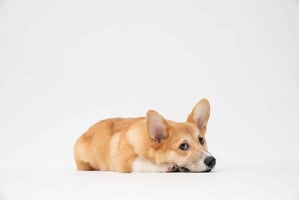Puppies are cute, cuddly and full of energy. But they can also be mischievous and have a tendency...
How to Deal with Aggressive Puppy Biting
Aggressive puppy biting is a common problem faced by many dog owners. It can be a difficult and frustrating situation to deal with, but it is important to take the right steps to ensure your puppy’s safety and wellbeing. In this article, we will discuss how to identify aggressive puppy biting behaviour, how to prevent it, and what to do when it happens.
Identifying Aggressive Puppy Biting
Aggressive puppy biting is different from normal play biting and mouthing. It is often accompanied by growling and snapping, and the puppy may also be more likely to bite when they are feeling threatened or excited. It is important to identify when your puppy is displaying aggressive biting behaviour, so that you can take steps to address it.
Signs of aggressive puppy biting include:
- Growling or snarling
- Biting harder than normal
- Biting when feeling threatened or excited
- Biting in order to get attention
Preventing Aggressive Puppy Biting
Once you have identified that your puppy is displaying aggressive biting behaviour, there are several steps you can take to prevent it. Socialisation is key to helping your puppy learn how to interact with other dogs and people. It is important to introduce your puppy to different people, animals, and environments in a positive and controlled way.
You should also ensure that your puppy is getting plenty of exercise. Taking them for long walks and playing with them regularly will help them to burn off excess energy and stay calm. Additionally, you should be consistent with training and reward your puppy for good behaviour. This will help them to understand what is expected of them and will set clear boundaries.
Dealing with Aggressive Puppy Biting
If your puppy does display aggressive biting behaviour, it is important to remain calm and not to overreact. Reacting with fear or anger can make the situation worse, as it can reinforce the behaviour. Instead, you should take the following steps to address the issue:
- Redirect their attention: If your puppy starts to become aggressive, try to redirect their attention to a toy or game instead. This can help to distract them and prevent the behaviour from escalating.
- Remove yourself from the situation: If your puppy is biting in order to get attention, try to remove yourself from the situation. This will show them that their behaviour is not acceptable and will not be rewarded.
- Use positive reinforcement: If your puppy does something good, reward them with treats or praise. This will help them to understand that certain behaviours are desirable.
- Consult a professional: If the problem persists, it may be beneficial to consult a professional. They can help you to identify the underlying cause of the aggressive behaviour and provide advice on how to address it.
Conclusion
Aggressive puppy biting can be a difficult and frustrating problem to deal with. However, by taking the right steps to prevent it, you can help your puppy to learn appropriate behaviour and ensure their safety and wellbeing. Identifying the signs of aggressive puppy biting, providing plenty of socialisation and exercise, and using positive reinforcement can all help to reduce the likelihood of it occurring. If the problem persists, it may be beneficial to consult a professional for advice.



